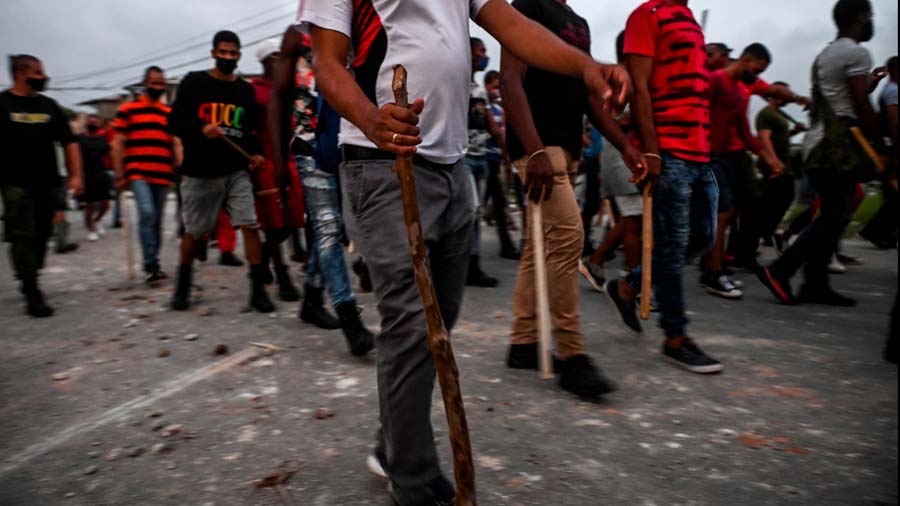
The Armed Forces and the National Civil Police are not armed groups but institutions expressly authorized by the Constitution therefore the proposed change cannot refer to them.
One of the reforms proposed by Vice President Félix Ulloa that most worries lawyers and human rights defenders is that of armed groups.
Currently the last paragraph of Article 7 of the Constitution of the republic expressly prohibits armed groups: “The existence of armed groups of a political, religious or trade union nature is prohibited,” the phrase reads.
However, the proposal for the draft ad hoc commission reads: “The existence of armed groups is prohibited, except in cases provided by law.”
This aggregate, according to lawyers consulted, is disturbing, because it does not specify which armed groups it could refer to, apart from the fact that it could open the door to, precisely, the existence of another type of armed groups.
“It is important to understand that neither the Armed Forces nor the PNC are armed groups: they are institutions directly authorized by the Constitution, they are not armed groups as such,” illustrates constitutional lawyer Enrique Anaya.
See: Reforms to the ISSS law will affect beneficiaries and workers, warn Social Security unions
For the jurist, it is important that Ulloa or the Ad hoc team clarify the intention to add this interjection.
“Here it is not clear what it means. I am not clear, I am frankly afraid what the cases provided for by law would be,” he said.
Given the lack of information and the authoritarian traits shown by the government of Nayib Bukele, the lawyer fears that even this interjection will open the door to armed groups such as those of the Hugo Chávez-Nicolás Maduro regimes in Venezuela or the of the Cuban Castro regime.
“Given the authoritarian nature of the current administration this forces speculation .. I don’t know if it refers to Cuban neighborhood committees or Bolivarian defense circles,” Anaya said.
The lawyer goes even further, although he clarified that this is speculation in the face of lack of information, and said he fears it is a kind of legitimation of the gangs.
“If we combine the circumstances that there are journalistic investigations that there are negotiations between this administration and the gangs and if we take into account the Supreme Court whether or not it decided for the extradition of gang members … It is pure speculation and I am not imputing but not if he tried any mechanism to legalize gangs in quotes in order to legitimize negotiations … we don’t know. Speculation is generated because we have not discussed these issues, “said the constitutionalist.
You may be interested in: Removing insurance from the Constitution puts fundamental rights at risk
So far, Vice President Félix Ulloa has a week of meeting with some sectors around the proposed changes although he has not specified whether there will be an opportunity to make changes to the wording of the proposed articles.
Celia Medrano, a human rights lawyer, expressed concern about the open door that this reform leaves if it is approved as it stands.
“The reform proposed in constitutional art.7 leaves an extremely dangerous ambiguity in trying to remove the clear ban on the existence of armed groups of a political nature. The proposed reform seeks to leave open the existence of armed groups of a political nature except in cases provided for by a law which is not specified, “he said.
Medrano puts his finger on the line taking into account the intentions shown by political actors linked to this government.
“This can be understood in different ways based on intentions publicly expressed by actors linked to the current government management. The Minister of Defense has already asked the government commission drafting the constitutional reforms to lift restrictions on members of the Armed Forces for to participate in politics. The Galician MP has also been pointed out to support the formation of armed civilian groups supposedly to confront organized crime actors responsible for causing forced displacement, “the lawyer argued.
Continue reading:
Court of Auditors investigates its auditors for fraud in reports in favor of mayors
Full authoritarianism in the reform of Ulloa: it opens the way to a single party